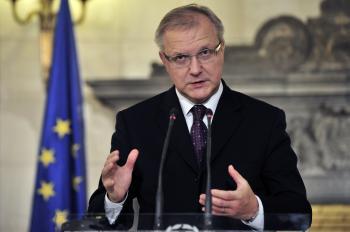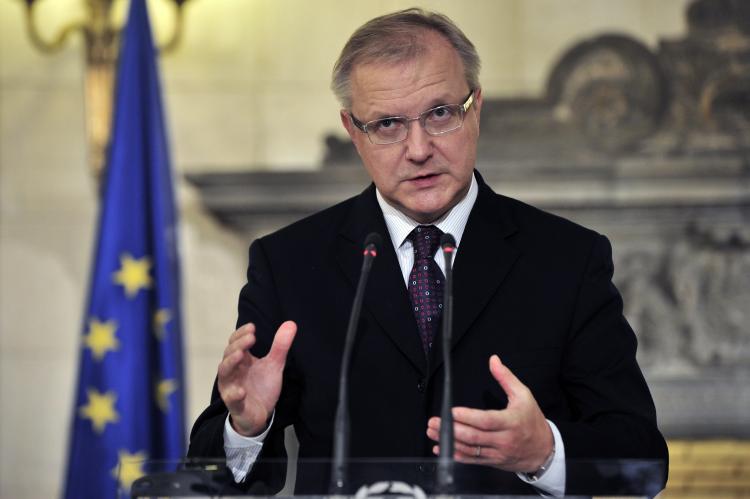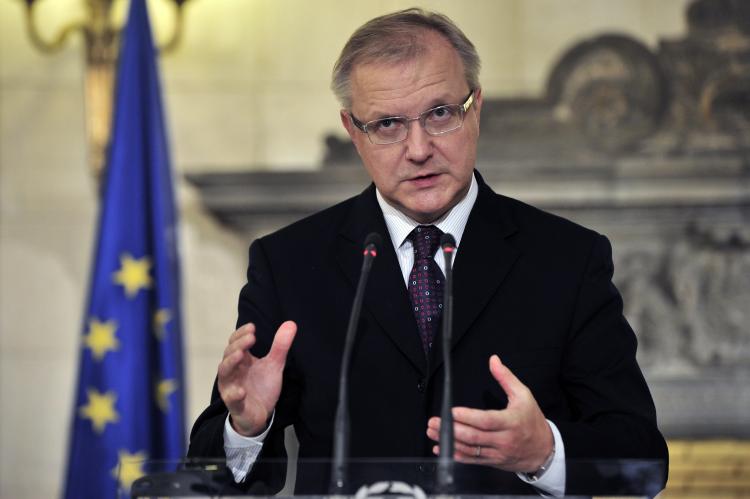EC, ECB and IMF Welcome Irish Authorities’ Banking System Announcements
The European Commission (EC), European Central Bank (ECB), and International Monetary Fund (IMF) issued a joint statement on the Financial Measures Programme in Ireland on March 31st

Economics Affairs Commissioner Olli Rehn ARIS MESSINIS/AFP/Getty Images
|Updated:






